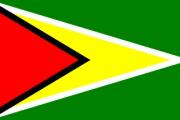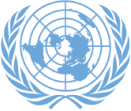Madam President, Distinguished Colleagues,
I have the honor to speak on behalf of the fourteen (14) member States of the Caribbean Community, CARICOM, for whom this Day of Remembrance of the Victims of Slavery and the Transatlantic Slave Trade resonates deeply. The vast majority of our member States, from Haiti, Jamaica and The Bahamas in the north through the arc of the lesser Antilles to Guyana and Suriname on the South American mainland – we are peopled by the descendants of the 15 million African slaves who were uprooted from their families and communities, who endured the harrowing voyage of the Middle Passage and were brought to the Americas in shackles and chains to live a life of hard labor, deprived of the most basic of human freedoms, of their language, culture and religion and indeed of their humanity.
But even in those dark days of the slave trade that provided the labor on the West Indian sugar plantations – the labor that produced the wealth that built the shining cities of the slave traders and slave owners - even in those dark days, the spark of human freedom was kept alive and spread across the barriers of language and of tribe, and across all the other artificial barriers created to keep the slaves divided. And at intervals across the centuries of slavery in the West Indies, the flame of freedom and the spirit of rebellion erupted as it did in Haiti under Toussaint l’Ouverture and Jean-Jacques Dessalines, who defeated the armies of Napoleon, and in Guyana under Cuffy and Akara, West African slaves who led their people out of chains and created for a fleeting moment a free Republic on the land to which they had been brought. That flame of freedom came to be symbolized in the communities of escaped slaves – the Maroons of Jamaica and the Bush Negroes of Suriname, whose resistance won them freedom from oppression and continues to inspire us today.
Madam President,
Fast forward two centuries and we have today a Caribbean of free nations that is a model of tolerance and diversity, of people of different ethnicities, languages and religions living together in peace and harmony. The African slaves and their descendants were joined by Indians from north India, Chinese from Fujian and Guangdong provinces in China, Portuguese from Madeira, and later by migrants from the Middle East and other parts of the world so that today the Caribbean is a melting pot with a distinct and captivating culture that has helped make the region one of the world’s top tourist destinations.
This Caribbean melting pot sits astride the cross roads between North and South America and between Europe and Africa on the other side of the Atlantic. We have transcended the bitter legacy of slavery and created for the world an example of tolerance, moderation and respect for diversity that often serves as a bridge to bring our global community together on the great issues on today’s global agenda that too often divide us.
Out of nothing we have created the reggae rhythms so magisterially personified in the lyrics of the iconic Bob Marley and which UNESCO last month designated part of the intangible cultural heritage of humanity. Out of discarded oil drums, we have given the world the enchanting sounds of the steel pan, the only completely new musical instrument invented in the 20th century. Our distinctive cuisine is a fusion of the great culinary traditions of the world, including the cuisine of our indigenous peoples from our mainland member States of Guyana, Suriname, Belize and across the region. Our peoples have distinguished themselves in politics, in the arts and sciences, as well as in the struggles for freedom waged beyond the confines of the Caribbean. One CARICOM member State alone, St. Lucia, population 180,000 – the same as Providence, Rhode Island or Yonkers in Westchester – St. Lucia has produced two Nobel Prize winners, Sir Derek Walcott for literature and Sir Arthur Lewis for economics.
But, Madam President, as we observe this Day of Remembrance, we remember not only the famous descendants of slaves whose names history has recorded - Barbadian Sir Garfield Sobers, the greatest cricketer in the history of the game. Colin Powell, son of Jamaican immigrants, who, as the United States Secretary of State, was no stranger to this Assembly Hall in which we are now gathered. V. S Naipaul, a native of Trinidad and Tobago, who before his death last year was regarded by many as the finest living writer of English prose. We remember also the countless nameless African slaves who lived and died in servitude in the West Indies. We pray that their memory will inspire us to continue to fight for respect for the dignity of the human person, respect for the human rights proclaimed in the Universal Declaration of Human Rights so that we give real meaning to the lofty words of the Declaration not only in the Caribbean but in every far-flung corner of the world where the inherent dignity of the human person is disrespected.
According to the ILO, over 40 million people, more than two-thirds of them women and girls, are subject to modern slavery in all its contemporary forms, including human trafficking, sexual slavery and domestic servitude. We must continue and increase our efforts to ensure greater compliance, including by the private sector, with the Guiding Principles on Business and Human Rights implementing the United Nations “Protect, Respect and Remedy” Framework, which are aimed at preventing modern forms of slavery in the work place. Continuing and increasing our efforts to rid the world of all contemporary forms of slavery and to recognize the inherent dignity of the human person and our common humanity would be a meaningful and fitting way to honor the memory of the victims of the Transatlantic Slave Trade.
But there are also concrete actions that can be taken. In 2013, Caribbean Heads of Government established the CARICOM Reparations Commission with a mandate to prepare the case for reparatory justice for the region’s indigenous and African descendant communities who are the victims of crimes against humanity, including genocide, slavery and slave trading. This mandate is being carried out through the CARICOM Reparations Justice Program which asserts that the victims of these crimes and their descendants have a legal right to reparatory justice. Compensatory justice for their descendants would also be a fitting way to honor the memory of the victims of the transatlantic slave trade.
I thank you.


